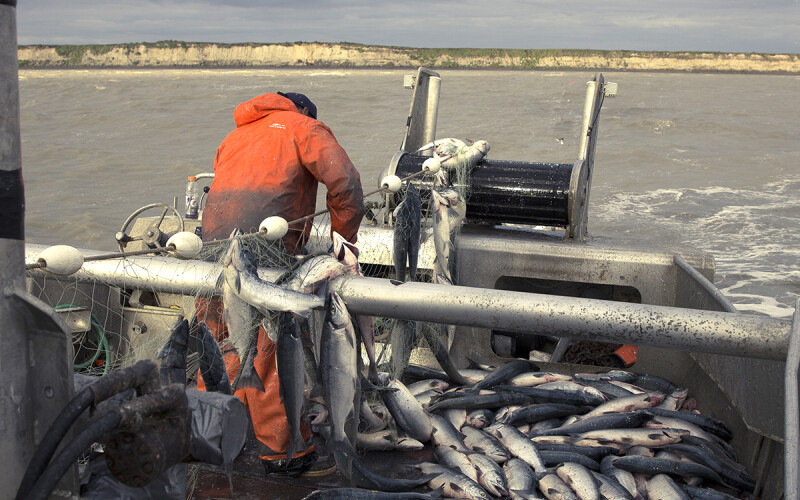Alaska's major seafood-processing companies have finally announced what they will pay for Bristol Bay sockeye this season, and the news is not good for fishermen.
Both Peter Pan and Trident Seafoods sent messages to their fishing fleets announcing what their base prices are less than half what they were in 2022. Those messages, viewed by SeafoodSource, indicate both companies will pay a base price of just USD 0.50 for 2023 Bristol Bay sockeye.
That price is one of the lowest in the last 20 years, according to data collected by the Bristol Bay Regional Seafood Development Association (BBRSDA). The last time the ex-vessel price was USD 0.50 was in 2015, and only one other year – 2004 – was close to that level at USD 0.51. It is also less than half of the USD 1.15 base price offered in 2022, per BBRSDA data.
BBRSDA Executive Director Andy Wink told SeafoodSource the big drop in price has understandably upset fishermen.
"Bristol Bay fishermen are livid and shocked at the USD 0.50 base price,” he said. “Many boats quit fishing in disgust. Fishermen costs are up, just like everybody else, but they are absorbing a smaller projected harvest and a 57 percent drop in base ex-vessel price."
This year also marks a shift in price announcements back to the norm. In 2021, Peter Pan Seafood publicly announced a base price of USD 1.10 on 19 June – a surprise move given the early date in the season.
In a document sent to Bristol Bay fishermen on 16 July, Trident Seafoods said its current base price of USD 0.50 is related to the glut of salmon in 2022. The Bristol Bay sockeye run hit an all-time record of 76 million fish in 2022, and according to Trident’s price announcement, inventories are now at all-time highs.
That glut resulted plagued the fishing season in Bristol Bay with uncertainty as rising inflation dampened demand. Combined, the multiple factors have caused a big drop in wholesale prices, the company said in its message.
“The extent to which wholesale prices have fallen across all species is difficult to fathom and has been very challenging for the Alaska seafood industry to absorb,” the company said in its message to its fleet.
The company also credited Russia moving products below market value to generate funding for its ongoing war against Ukraine as a reason for price drops.
One day later, on 17 July, Peter Pan announced its base price – marking the first time in three years the company was not the first to announce a price, and a shift from its previous public announcements. The company also set a base price of USD 0.50 but added that it is granting a “late season bonus” for sockeye salmon of an additional USD 0.20.
“Peter Pan Seafoods is offering a late-season bonus on sockeye salmon to help support our fishers in these difficult and trying times,” the company said. “We will stay open as long as it financially makes sense for our fishermen and Peter Pan.”
Both companies are offering quality incentives along with the base price for sockeye salmon. Trident is offering an additional USD 0.15 per pound for sockeye in refrigerated seawater (RSW) or iced sockeye that are under 39 degrees Fahrenheit, an additional USD 0.05 per pound for floating (drift only), and an additional USD 0.10 per pound for bled sockeye, also drift only.
Peter Pan, meanwhile, is offering an additional USD 0.25 for RSW/floating sockeye, an additional USD 0.20 for ice/floating, and an additional USD 0.05 for floating.
This article was originally published in Seafood Source and is republished here with permission.







